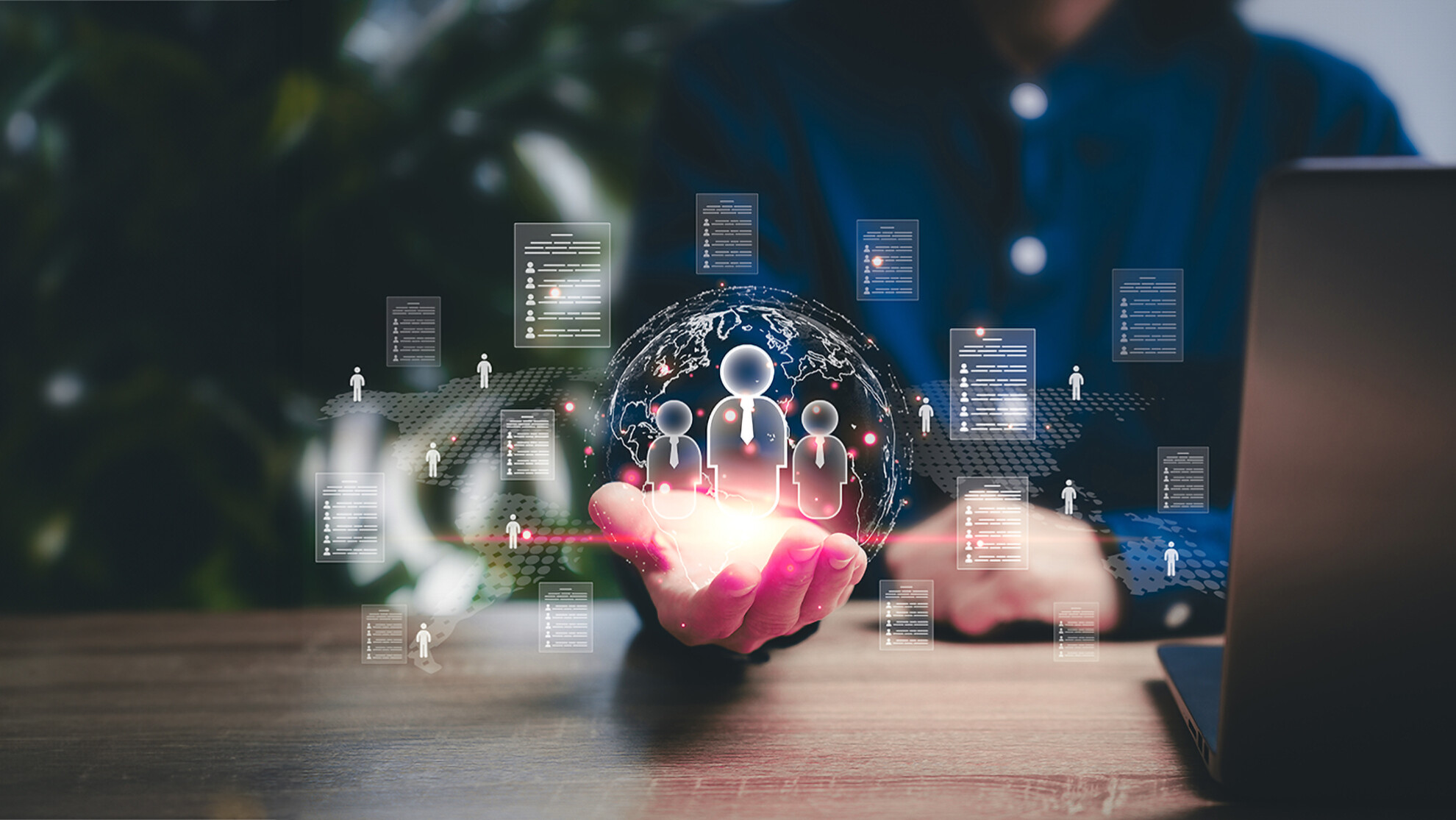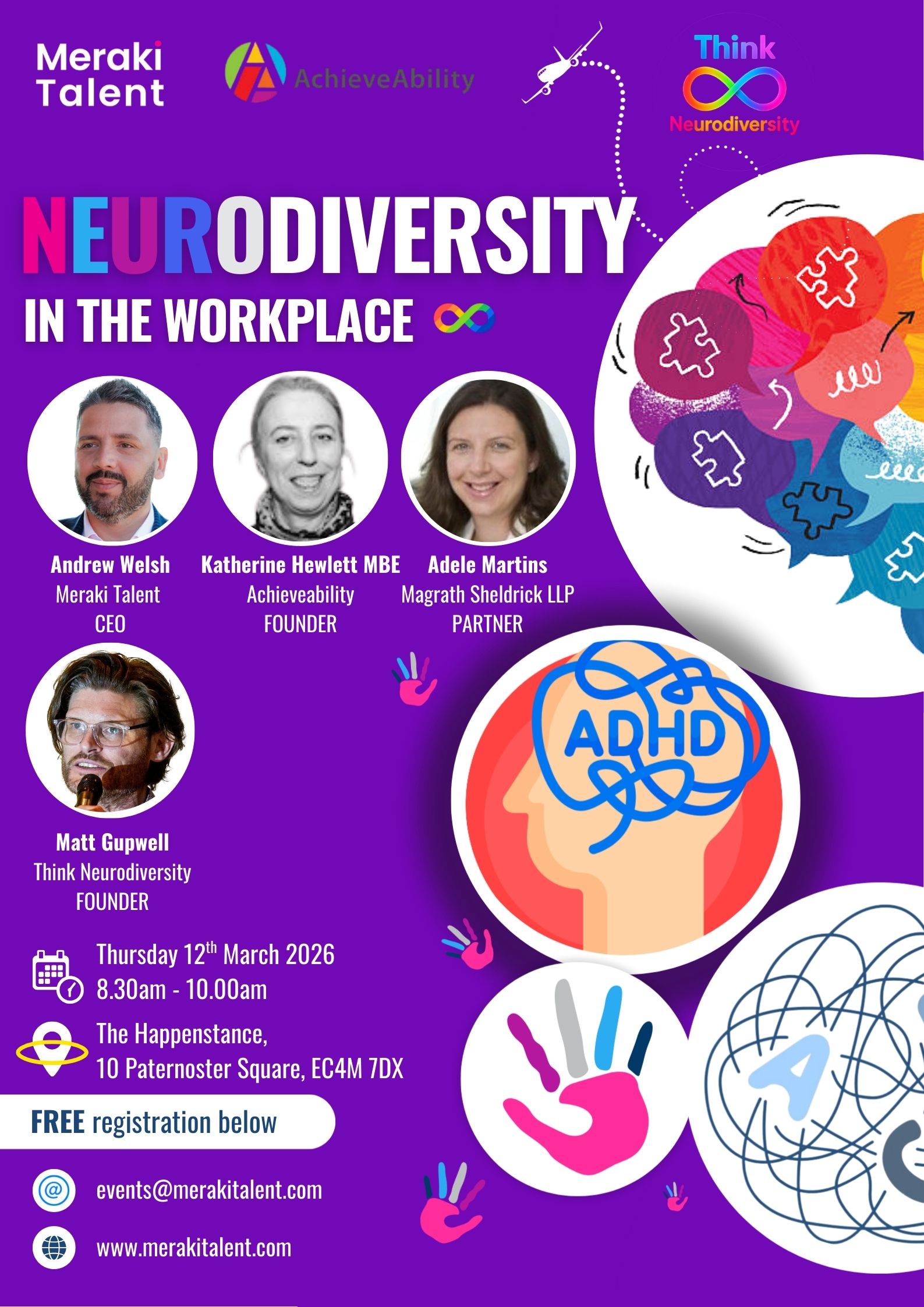
How is AI reshaping HR and Talent
| 12/03/2024
Artificial intelligence (AI) is transforming every aspect of our lives, from how we shop to how we study and work. It comes as no surprise that AI is changing how organisations approach recruitment. AI has the power to be a game-changer, reshaping how organisations identify, engage, and nurture their most important asset—human resources.
According to a LinkedIn study, 76% of recruiters believe that AI will impact their talent acquisition. We explore ways that AI is reshaping recruitment, and what it means for HR professionals, employers, and employees.
AI and the recruitment process
An ‘AI Recruit, Intelligent Tomorrow’ report by Intelion Systems reveals that while AI’s ability to save time is appreciated by 67% of hiring decision-makers, 35% of them worry it might overlook candidates who have distinctive skills and backgrounds. This highlights that AI is still in its infancy and that those using it need to balance the benefits and drawbacks of AI in HR and talent.
AI in candidate attraction and sourcing
Automation and applicant tracking systems (ATS) have long been used in hiring. Whether it’s assessing qualifications, knowledge, skills or experience, the more sophisticated use of AI can accelerate shortlisting, enabling recruiters to focus on assessments and interviews.
AI is not only a tool for automating tasks and improving efficiency but also a source of innovation and opportunity. AI can help HR and talent professionals:
Using AI to attract and retain the best talent AI can:
- streamline the recruitment process by using data and algorithms to identify, assess, and match candidates with suitable roles.
- enhance the employee experience by providing bespoke feedback, coaching, and training.
- help with a culture of diversity and inclusion (D&I).
Using AI to enhance performance and productivity AI can:
- optimise the workflow and collaboration of teams.
- manage, monitor, and measure performance by using data and analytics.
- identify and resolve issues.
- provide staff with smart tools and assistance, such as chatbots, virtual assistants, and digital platforms.
The Power of People Analytics
People analytics is a useful asset to HR teams. With AI, it can analyse historical data to predict candidate success. Equipping recruiters with data and intelligence around candidate capabilities is powerful. By examining patterns from past hires, AI identifies traits associated with high-performing employees. These insights can guide decision-making. Insights can:
- identify candidates who align with the organisation.
- identify staff for promotions.
- signify underperforming employees.
Human intelligence is still vital
Using AI in recruitment and HR could result in reduced empathy and reasoning. AI technology, while powerful, lacks the human intelligence and judgement needed to assess qualities such as emotional intelligence and potential. Human interaction and assessment remain critical in evaluating a candidate’s suitability beyond what AI provides. AI-driven automation and human involvement need to be used in unison to make well-informed hiring decisions.
AI and the impact on talent and employee experiences
AI can, to some extent, improve the candidate experience. AI can build a holistic and integrated platform that connects the talent lifecycle, from attraction to retention. If used correctly, AI can help create an engaging and personalised candidate experience. Candidates can gain quicker and more relevant feedback. HR is a human process and candidates should not be made to feel like ‘just a number.’
AI can improve employee satisfaction and wellbeing by:
- automating repetitive and mundane tasks.
- enabling flexible/hybrid, and/or remote work.
- enabling learning and development opportunities.
Data protection and AI in recruitment
General Data Protection Regulations (GDPR) have regulations on the collection, processing, and storage of personal data. Organisations using AI in recruitment must ensure
compliance with GDPR guidelines, including:
- obtaining informed consent.
- implementing appropriate security measures.
- give individuals control over their data.
Is AI regulation needed in the workplace?
That is an interesting and important question for HR leaders and employees alike. Between 2020 and 2023, demand for employee surveillance software grew by 54%, according to research from Top10VPN. Most employees oppose this kind of tracking, according to Pew Research Center data. 81% of workers say AI monitoring makes them feel like they’re being inappropriately watched and has negative psychological effects.
AI regulation in the workplace could:
- ensure that AI is used ethically, legally, and responsibly.
- ensure that it does not harm or discriminate against workers.
- give clarity and certainty to employers and employees on their rights and obligations.
- could create trust and confidence among employees.
- pose challenges and risks, such as limiting innovation and competitiveness.
- impose excessive costs on businesses.
- limit the flexibility and creativity of AI developers and users.
- fail to keep pace with the rapid and dynamic changes in AI technology.
In November 2023, the government issued draft guidance to support businesses to upskill their workers and unlock the benefits of AI. There are currently no UK laws governing the use of AI and other algorithmic management tools at work. Current areas of law potentially restrict the use of these tools in practice. These include privacy law, common law, and data protection law.
AI to support diversity, equity, and inclusion (DEI) in the recruitment process
AI algorithms can perpetuate bias if not carefully designed and monitored. Biases in historical data used to train algorithms can lead to negative outcomes. With incomplete data, flawed algorithms, or missing feedback, AI can amplify or introduce bias and discrimination in the talent management processes, including:
- hiring.
- performance evaluation.
- promotion.
It is crucial to assess and address biases in AI algorithms to ensure they are fair and unbiased. By using data and algorithms that are fair, transparent, and accountable, reducing bias and discrimination in hiring, promotion, and performance evaluation processes is possible. AI can be a powerful tool for advancing diversity and inclusion, but it needs human oversight and intervention to ensure that it is fair.
Moving forward: skills and competencies of HR professionals
Some of the key skills and competencies that HR professionals will need to develop to work with AI are:
- Technical understanding: a basic knowledge of how AI tools work, and how to use them in their HR processes and tasks.
- Data literacy: to use data-driven insights to inform their decisions
- legal implications: aware of data privacy, security, bias, and discrimination.
- Ethical implications follow the best practices and regulations to ensure ethical and responsible AI use.
A fine balance
AI can erode trust and present communication issues. Those working in talent acquisition could experience lower autonomy and less meaningful work if elements of their role are taken away. An overreliance on AI could result in the loss of human influence and human touch.
While AI is reshaping human resource management and talent acquisition by optimising efficiency, reducing bias, and enhancing candidate experiences, attention needs to be paid. HR and hiring need empathy, understanding, and emotional intelligence (EI). These futuristic tools have a role in the recruitment process but just how far we use them remains to be seen. Where are you with your AI journey?
If you would like to discuss how AI is reshaping recruitment or your HR requirements, contact Tracy Freeman, your dedicated HR recruitment specialist.
Find out what jobs Meraki Talent has on offer.
